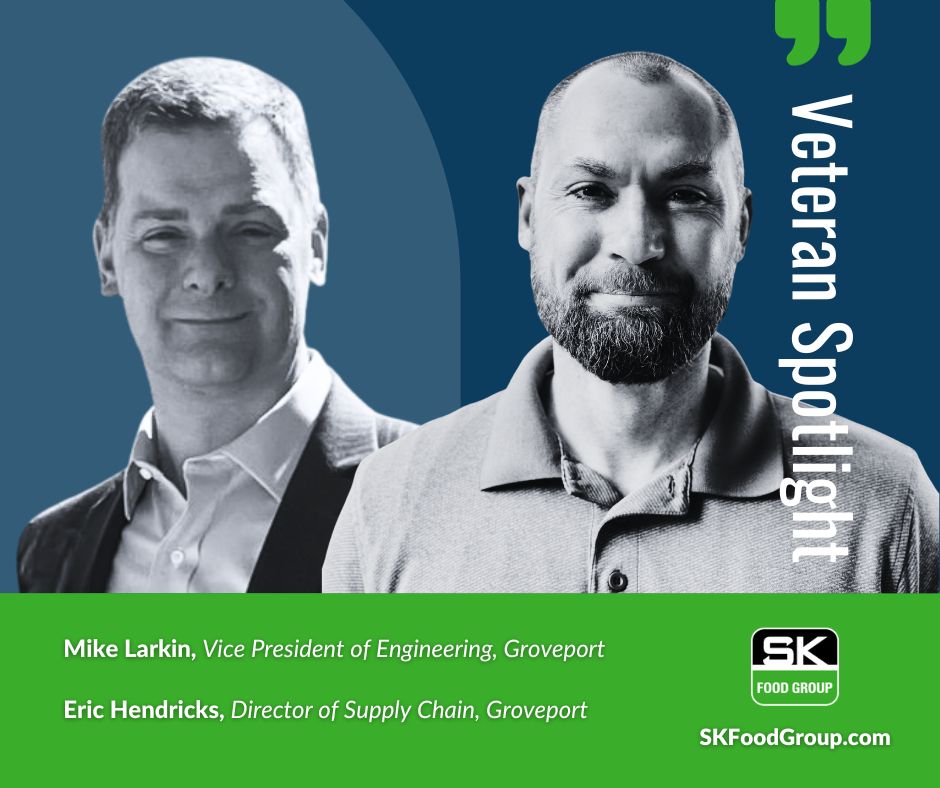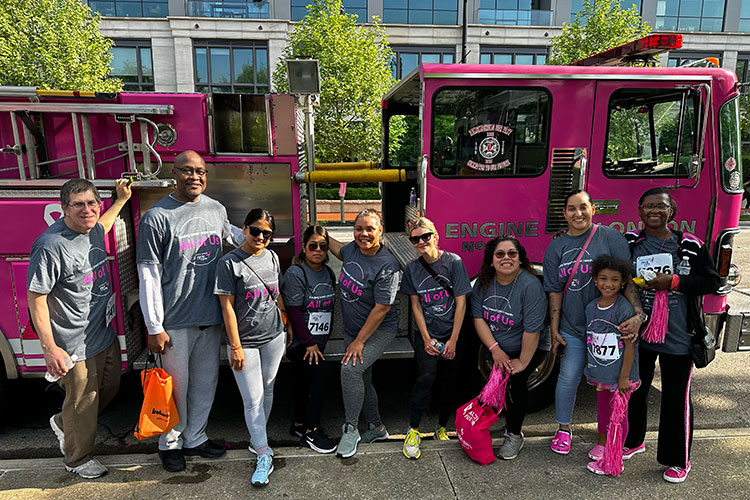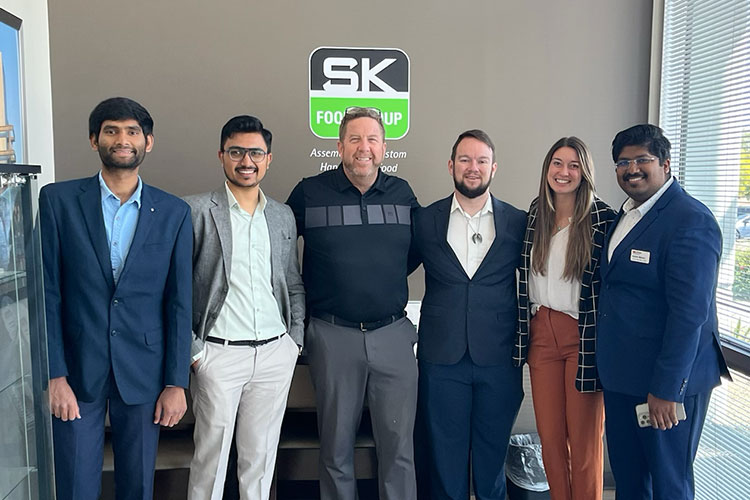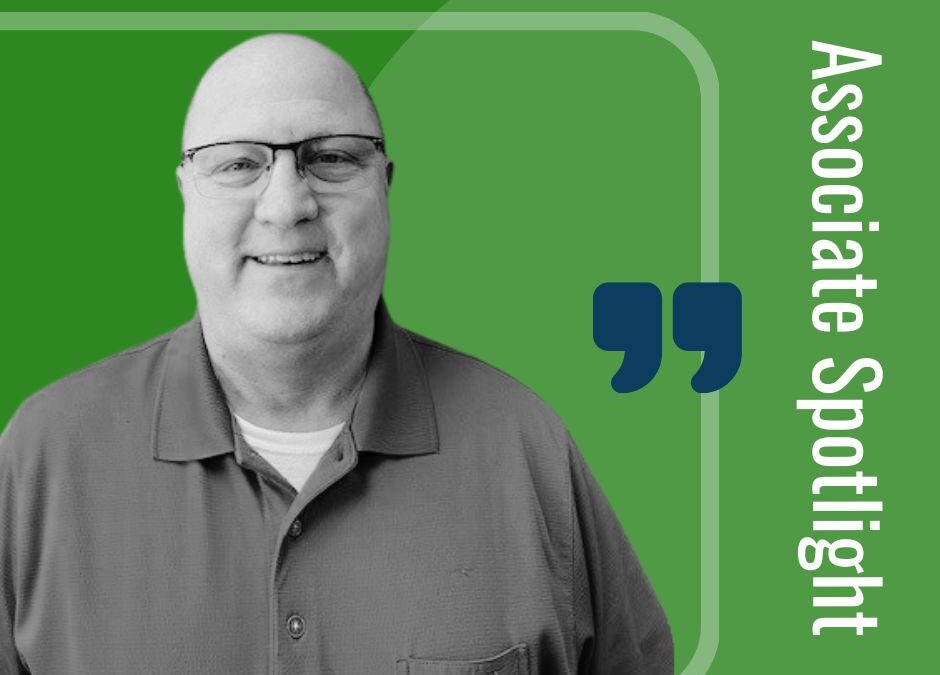An Interview with Mike Larkin and Eric Hendricks
In commemoration of Veterans Day this year, we had the privilege of conversing with two esteemed associates at SK Food Group, both of whom share a background as former Marine Corps Veterans. Meet Mike Larkin, a retired Captain with service spanning from 1998 to 2002, including time in the reserves. Currently serving as SK’s Vice President of Engineering in Groveport, Ohio, Mike brings a wealth of leadership experience to the team. Joining him is Eric Hendricks, SK’s Director of Supply Chain, a former Staff Sergeant and reservist from 2006 to 2014, with deployments in Afghanistan, Haiti, Africa, and Kuwait. We delved into their military journeys and explored how these experiences have seamlessly translated into their roles at SK.
SK: “Tell me how your time in the service influenced your current career goals.”
ML: “I think what the military did for me was give me a lot of discipline. You hear a lot about how motivation will get you far and motivation comes and goes, but I think it’s a lot more about the discipline and what you have to do to make things happen. And really that never quit mentality is one of the things, right? In the engineering field, we encounter lots of different challenges, timelines, costs, how we’re going to make something work, and it’s kind of that resilience that you need to keep trying things because you’re never going to be successful in the first try, so you have to just keep trying things. I think the military has really helped me with those pieces of my professional life that have made me successful.”
EH: “Yeah, I think for me, the Marine Corps kind of just exposed me to a lot of different fields of career field opportunities—I grew up in a rural area, it was mainly farming and whatnot, and I make the joke in 2006 when I got in the Marine Corps, the first time I ever saw an iPod was sitting next to another marine on base—when you think of the military, you mostly think of rifle platoons, but there’s a lot of behind the scenes work that goes into that. Everything from standard HR to logistics and supply chain to procurement and all those different things. It kind of just opened those doors and those windows for me to see that.”
SK: “How long have you worked for SK?”
ML: “Since 2015.”
EH: “Off and on since 2014.”
SK: “Since you both have prior leadership experience in the military, how does that help with your job at SK?”
ML: “I mean, I think it is definitely transferable, right? So it’s still about leading people, and leading contractors today for building our buildings and installing equipment and things like that. So it really is learning how to communicate with folks, how to get people to see your side of the story and your opinion and your ideas, and really just work with other folks.
As a platoon commander, you had supporting arms that were with you. You might not be a specialist necessarily in mortars or machine guns, but you had people that were attached to you that could answer those questions for you. And it’s a lot about relying on those experts and I think that’s one of the things that my leadership time in the military allowed me to do, was understand how to communicate with those experts and be humble enough to say that you don’t know everything, and ask for that help and that input that they can provide from their area.”
EH: “Yeah, it’s funny—I was just thinking the same thing on the enlisted side. Taking that commander’s intent, whether it’s Captain Larkin or a Lieutenant Commander and being able to take their commander’s intent, filter that down to how you execute with the personnel that work laterally and below you. And I think that that definitely rolls into being utilized at SK as well for Mike and the executive team. They give the directors and senior managers that kind of commander’s intent and then we take that and execute on that with the various tasks. I think that kind of just translates over from the Marine Corps right into SK.”
SK: “What would you say are three things that motivate you to be successful at work?”
ML: “My family is the reason I get out of bed every day. I want to provide for them. I want to give them a great life. So I think that’s pretty standard for a lot of folks. I think personally what really motivates me is pride in what I do. I really, really take a lot of pride in what I do. I love to look back at former projects and see how the Phoenix building is holding up over seven or eight years and I’m always trying to find ways to make it better.
And then the other piece—is really the respect that I have for the SK family. Just understanding that the equipment that I’m putting in or the buildings that I’m building are helping other folks fulfill their dreams and to make the company better and stronger and being able to do all the great things that we do. So I really understand how my role and my job ties into all of that because it really becomes critical for those folks because if we make a mistake or we don’t do something as well as we should have. It’s a lot harder for the folks making the sandwiches to do their job and everything else. I think those are the things that really, really fill me every day.”
SK: “Eric, would you like to add to anything?
EH: “My family and the responsibility I have to them, I like working as part of a strategic team, and finally the management team at SK drives me to work to the best of my ability.
Being part of that strategic team—even my interaction with Mike on here when he’s building these new buildings and he involves me and asks me, ‘what kind of assets do you need? What kind of capabilities do you need to have that strategic planning part?’ I really, really enjoy that and that just rolls into how do we continue to grow the business, how do we continue to provide the service level that we seek for our customers? And in all honesty… I think our management team is absolutely amazing. We all just get along really well. Everybody’s comfortable to reach out to each other if you don’t know or understand each other or what we’re working on. We just have that level of comradery amongst us that I think is really beneficial.”
SK: “What do you think veterans in general can bring to the table in a company like SK or anybody with some military background and experience?”
ML: “Yeah, I think a lot of what folks can bring to the table really is part of our values. The values that we have between ‘we care’, ‘doing the right thing,’ ‘delivering as promised,’ and, ‘whatever it takes’ really ties into any branch, any level in the military and the folks that would’ve experienced that. It’s really powerful because there’s a lot of getting the mission done and everything else. And a lot of that really translates well into SK. Being a co-manufacturer and bringing other people’s vision to life is very powerful and that whatever it takes attitude is kind of where veterans can really excel at SK.”
“The values that we have between ‘we care’, ‘doing the right thing,’ ‘delivering as promised,’ and, ‘whatever it takes’ really ties into any branch, any level in the military and the folks that would’ve experienced that. It’s really powerful because there’s a lot of getting the mission done and everything else. And a lot of that really translates well into SK.”
— Mike Larkin, Vice President of Engineering
EH: “I think different skill sets, a lot of the leadership stuff kind of translates over. I know a lot of the veterans at SK usually start at a supervisor level and the ability to look across those lines from everybody, from a production line worker down to a machine operator, to packaging various different skill sets and recognizing talents in each individual and where they need to continue to develop those talents.
I think veterans in the military, you have this common understanding. Everybody has this base level training, but then if Mike is a platoon leader or a platoon sergeant, you look across at your Marines underneath you and you see where the gaps are and where you need to develop those individuals. And then you also recognize different capabilities within each individual person. Some people are really good at strategic development, some people are really great at training others. And I think some of that kind of just rolls into management at SK.”
SK: “Is there anything you’ve done during your time at SK that makes you especially proud?”
EH: “I think the largest effort I have brought to SK is relationship development with one of our largest customers. Our partnership with them is beyond a strategic partnership, and I have been part of the continued growth of this relationship.”
ML: “I think for me it is the ability to build these great buildings and put in new line installs and automated equipment and really taking us to the next level from an automation and a facilities perspective. I mean that’s the dream. Engineering to build a factory or to put in a new line, and I just keep getting the opportunity over and over again with SK and that’s really powerful for me.”
SK: Would you encourage other veterans to join the team?
ML: “Absolutely. I’ve found my forever place. I’ve worked at a lot of different organizations since I’ve left the military and by far and away, this is the greatest company I’ve ever worked for. It’s the leadership team all the way down. I mean, you struggle to find somebody without a smile on their face inside of the factory every day. And it’s just electric when you walk out there and you see folks that are trying their darndest to do the best job possible and you just want help. So I think a lot of other veterans could understand that rush and want to help with that. And the support that we give to folks is that we really live the value of ‘we care’. And I think for folks that are transitioning out of the military, it’s a difficult transition and I think we have enough folks on board inside of the team that understand that transition and could help them make that move. ”
EH: “I agree with Mike, and you look across the board at SK at the veterans. We’ve got Joe in IT and you can see how his leadership really translates down to how he manages his team. He’s really involved and knows exactly what’s going on, all the way to Mike, who’s planning what buildings we’re going to be building next year all the way out to five years. And I think there’s an opportunity for a veteran coming out of any branch of service with, whether they came out as a private first class or they came out as a colonel. I think their leadership abilities would definitely translate well at SK.”
SK: “Are there specific jobs you think suit vets well at SK?
ML: “That’s a great question. I think Eric had mentioned this before, I think whether you were an officer or enlisted in any of the branches, you still come out as a leader. So I think there’s a lot of opportunity inside of leaders working with people. And I think it could go easily into the operations roles, the maintenance roles, the quality department roles, anywhere where you’re just interacting with people and really being a leader out there for ’em.”
EH: “Yeah, same. I think most of us start on the operations side. I mean, that’s where Mike started, that’s where I started. You get guys like Joe that have a special tool set and they can start there. I think a lot of it depends upon experience and education. If a veteran takes advantage of those education opportunities while they’re in and they get a degree in HR, I think they could walk right out of the Marine Corps or any other branch and walk right into SK’s HR department.
The same thing if somebody gets an electrical engineering degree that Mike would probably definitely want to take a look at. And then myself, I just went the different route. I’ve got a degree in supply chain and like I said, I was exposed to that when I was in the military and I thought, well, this seems to be a good career field. I think I’ll stick with this one. So we went down that road. I think you could put ’em just about anywhere, just depending upon experience and education.”
SK: “Have you seen any vets take advantage of the educational opportunities at SK?”
EH: “Yeah. Joe just finished his master’s degree in it. SK took care of that. So yeah, we just had a veteran get his master’s degree.”
SK: “What advice would you give to recruiters at SK who may be interacting with veterans?”
ML: “You have to go where the vets are going to look for jobs. They’re looking in different places. They’re not always on indeed or they’re not always on some of the normal channels that we recruit through today. So I think there’s a huge opportunity out there. I know from the junior military officer side, there’s an entire subset of recruiters that does nothing but help junior military folks. So I think it’s really to find those folks and help them understand what they could do by using some of us as examples. Here’s some vets that are in the SK system today because it brings forth that comradery, right? It’s a little bit scary, but I think once you know that you have other like-minded folks there or folks that have gone through similar experiences, it makes it a little more inviting and a little bit easier to do.”
SK: “Gentlemen, a sincere thank you for your time today, your service and for all you do at SK.”





